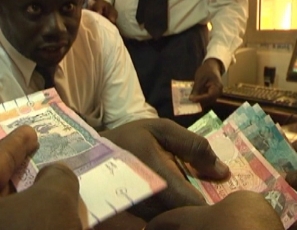South Sudan to announce anti-economic crisis strategy
March 12, 2015, (JUBA) – South Sudan will soon unveil a strategic plan aimed at addressing its economic crisis, a senior finance official disclosed on Thursday.

“It [plan] also calls for immediate financial and technical assistance to help the government provide support to small and medium-sized businesses, reductions in government spending on non-essential services and limited foreign trips of government officials and protection for those most vulnerable to inflation,” said Yak.
The draft strategy entitled “Strategic Economic Plan”, places emphasis on exploring all opportunities and exerting efforts to expedite processes to ensure peace and stability returns to the country.
The new plan comes more than a year after the tumultuous events of 2013 when political debates within the ruling Sudan People’s Liberation Movement (SPLM) turned violent and spread to the army.
The conflict in which affected the economy of the country to the extent South Sudan pound, the national currency, dropped to record lows due to the falling price of oil.
The local South Sudanese Pound (SSP) reportedly lost an estimated over 50% of its value in 2014, losing 70% of its value in March this year.
The country is struggling to address speculations brought about by the looming international sanctions on individuals perceived to be blocking the ongoing peace process and for failure to make a compromise to end the nearly 15-month-long conflict in the young nation.
Finance officials say the proposed economic strategy plan, consists of 30 points, seven of which are considered “key areas of action”.
“Support for the import of essential commodities”, promoting “development of small and medium enterprises by reducing financial and administrative costs” are some of the notable issues within the plan.
The draft strategy plan also calls for unspecified reduction in the budgets for most agencies, starting by cutting “inefficient spending”.
Local markets are concerned over the collapse of peace talks and the resumption of hostilities between the two armed forces in addition to declining oil production and drops in the international price, which has caused SSP to easily plummet over hard currency.
The official rate, according to officials at the central bank, stood at 3.16 per dollar at commercial banks and 29.5 at the central bank by close of business on Thursday.
However, in the black market, the local currency had depreciated badly against dollar hitting up to SSP 7.2 per dollar before dropping to between SSP 67 and SSP 68.
NO POLICY IN PLACE
South Sudan’s economic sector, analysts say, has never had a sound policy since the country seceded from neighbouring Sudan in 2011.
Wilson Deng Jackson, a financial market analyst said the government is driving the economy in the wrong direction evidenced by the continued depreciation of the SSP against the dollar.
“Going by what is happening in the last two to three years, one tends to wonder whether those managing the economy really do have that ability because clearly, the economy is going in the wrong direction,” said Deng.
“Whichever way you look at it, one would not be wrong to say that they policy makers in the government and in the private sector are driving the economy in the wrong direction,” added the analyst.
He cited lack of policy consistency and predictability as causes of these economic woes and poor performance of the local currency.
“This volatility is indicative of challenges that need to be addressed because we don’t have a definite pattern of supply and demand,” Deng told Sudan Tribune.
“If we had consistency in terms of policy, we would not have all these challenges we are seeing. I don’t think the people who are managing the economy are anticipating the demands that come on to the market,” he said.
He said government should review its approach to economic matters.
“We are put at a crossroads because looking at that 70% of depreciation it is too high. The solution is to rethink and look at that fiscal policy and replace it with one that is friendlier,” said Deng.
“An enabling environment has to be created by putting a lot of efforts to bring peace as a first priority now,” he added.
(ST)
